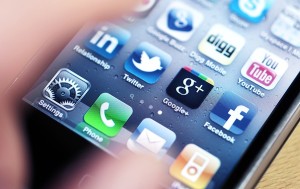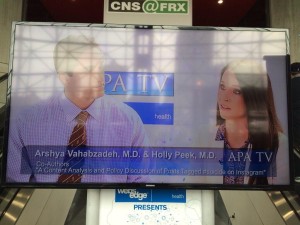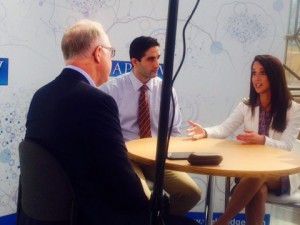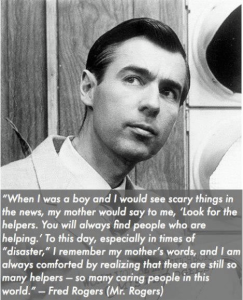Social Media and Mental Health
I’ve recently had several opportunities to share my interest in social media when it comes to public mental health, patient education, and advocacy. I’ve started writing as the Digital Media in Psychiatry Columnist for Psychiatric Times, working as the Media Editor for American Journal of Psychiatry Residents’ Journal, and had the amazing opportunity to be interviewed for Get Social Health, a new podcast about healthcare and social media.
If you’re interested in social media and mental health advocacy, check out some of my resources below! Would also love to hear what you think about mental health and social media, comments welcome!
Social Media: An Opportunity for Psychiatrists, Psychiatric Times, July 9, 2014
Psychiatry and Professionalism in the Digital Age, Psychiatric Times, June 19, 2014
Get Social Health Podcast, June 15, 2014
Emotional Recovery after the Boston Bombing
The five days of terror in Boston began with a horrific bombing and ended with a police shoot out, a capture of a terrorist, and finally celebrations in the street. For the victims, their families, and the people living in Boston, the fear, uncertainty and anger that lasted for those five days undoubtedly caused a great deal of mental distress. For the rest of us glued to our televisions watching non-stop coverage of the terrorist attack, the feelings we experienced were equally unsettling.
Victims and witnesses to the violent events of last week may be faced with a range of negative emotions. Not all negative feelings are pathological. It’s natural to feel anger, frustration, helplessness, grief, sadness or fear after a terrorist event. Acute stress disorder and post traumatic stress disorder (PTSD) occur when a person has experienced or witnessed a traumatic event and felt an intense fear or helplessness. They may feel detached or be described as “being in a daze” either while the event is happening or afterwards. They will frequently re-experience the event through recurrent dreams, thoughts, or flashbacks and often avoid recollecting the trauma either by avoiding conversations, people, places, or activities they may associate with the event. They have symptoms of increased arousal, including difficulty sleeping, irritability or outbursts of anger, difficulty concentrating or an exaggerated startle response. Symptoms of Acute Stress Disorder begin shortly after the traumatic event and the symptoms last for less than four weeks. Symptoms of PTSD, on the other hand, can present shortly after or months after the event and the symptoms may persist for years.
For the rest of the country, witnessing the events play repeatedly on television may not be enough to induce Acute Stress Disorder or PTSD, but it can certainly cause a sense of uneasiness and a reminder that there are people out there who commit evil acts when they are least expected. Some psychologists have described disasters caused by terrorism such as 9/11 and now the Boston bombings as “collective traumas.” Because of the large scale and unpredictability, collective traumas serve as a reminder that we are all vulnerable to death and harm and we have limited capabilities to protect those we love, thus threatening our sense of security in everyday life. In order to avoid feelings of uneasiness or paranoia, it’s important to keep the perspective that on any given day, the likelihood another attack will occur and that it will happen to you personally is quite low and it’s important to continue engaging in normal activities.
It’s also important to realize for every evil terrorist, there are millions of good people. The number of heroes that emerged in Boston were exponentially higher than the two hateful young men who inflicted so much pain. On the news, we heard stories of all the helpers that emerged during a time when many Bostonians needed help the most, both physically and emotionally. That in itself is reason enough to instill a sense of hope and comfort.
Welcome to Psych Gumbo!
Psych Gumbo is a health column and radio show focusing on mental health topics for the Tulane and New Orleans community. Founded in February 2013, Psych Gumbo’s mission is to openly discuss important mental health topics using accurate and evidence based information in order to educate our community.
Mental illness is very common in the United States. In any given year, one-quarter of adults are diagnosable for a mental disorder, however, only 36% of those with mental illness are receiving any type of treatment. We hope to do our part in educating our community and encourage readers and listeners to become a part of our mental health discussion!
The radio show airs monthly on WTUL Radio, New Orleans on 91.5 FM and is co-hosted by Dr. Holly Peek and Dr. Mordecai Potash. The newspaper column is written by Dr. Peek and is published twice monthly inThe Hullabaloo, Tulane’s nationally award-winning student newspaper.
We eagerly welcome comments and questions from readers and listeners of Psych Gumbo!
A note from Holly:
In 2011 while a medical student at Tulane University School of Medicine, I began Holly on Health. Holly on Health was a radio show, newspaper column, and blog dedicated to the health issues of Generation Y. As a medical student with a background in broadcast journalism, I thoroughly enjoyed using the media to educate the community about important health topics. After graduating medical school in May of 2012, I decided to stay in New Orleans to continue my training as a psychiatry resident at Tulane. As a physician journalist and a psychiatrist-in-training, I am looking forward to talking about important health issues, in particular, mental health.
Psych Gumbo is a new radio show on WTUL New Orleans 91.5 FM that I will be co-hosting with psychiatrist, Dr. Mordecai Potash. The talk radio show will focus on mental health issues at Tulane and in the New Orleans community. I will also be continuing my health column in The Hullabaloo, and focusing on mental health issues of college students. I look forward to starting Psych Gumbo and always welcome questions and comments about anything and everything mental health!
- Dr. Holly Peek, M.D., M.P.H.





